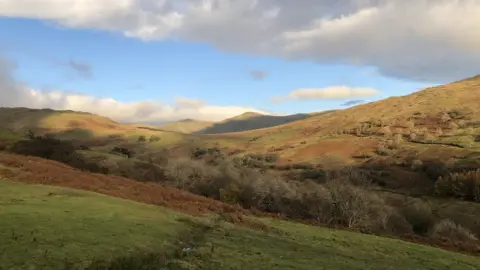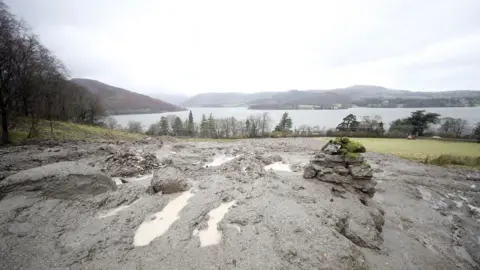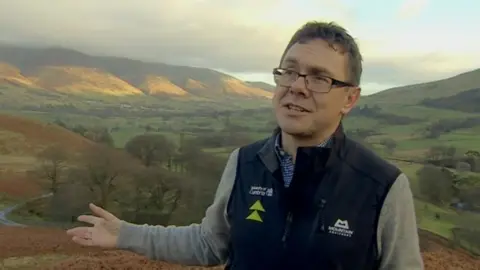Climate change: Lake District facing 'dramatic' soil erosion
 BBC
BBCThe Lake District is suffering from soil erosion at a "dramatic rate" and could look very different in 50 years' time, an academic has warned.
Dr Simon Carr, programme leader for geography at the University of Cumbria, said extreme weather caused by climate change is stripping the fells.
He argues halting grazing by animals would be a good way to restore the land by allowing vegetation to recover.
However, farmers warn a "blanket ban" could lead to food shortages.
Dr Carr, who helped compile the Lake District's State of the Park plan in 2018, believes droughts followed by devastating storms in the past few years are at the heart of the issue.
 PA Media
PA MediaHe said: "The conditions are absolutely perfect for causing degradation to the landscape.
"They desiccate the peaks, they dry it, they become very breakable and erode very easily when you have a storm.
"It's taken 10,000 years to create the soils we see in the Lake District, and the rate of loss is really quite dramatic.
"Within a few decades we're going to see the areas of bare rock we see on the mountains stretching further and further down slope.
"We're maybe talking about 50 years. It could be less."
Dr Carr said there is "significant evidence" of erosion on the fells amounting to about 3cm (1.2in) per year.
He also pointed to a rise in organic carbon being found in water as a result of peat being washed into rivers, and increased sedimentation being found in lake basins.

The answer "theoretically" would be to stop grazing which would allow vegetation and blanket bog - the "carbon store in the landscape"- to recover and "lock up the water that stops flooding being transferred to the valley bases".
"We see small-scale restoration attempts being undertaken where they just exclude grazing animals and it's very, very successful", he said.
"But the scale we need to do that on is really quite substantial, and for an area that depends on upland farming that's never going to be a popular thing to do."
Sarah Chaplain-Bryce, who runs Low Bridge End Farm, near Keswick, has planted a forest in which she plans to graze sheep in an attempt to produce carbon-neutral meat.
She said: "We are absolutely passionate [about the environment] and we don't fertilise because we're environmentally driven, but we've all got to eat.
"If you take farming away where's your food going to come from? I don't think you can have a blanket policy - a one-size-fits-all doesn't work."


